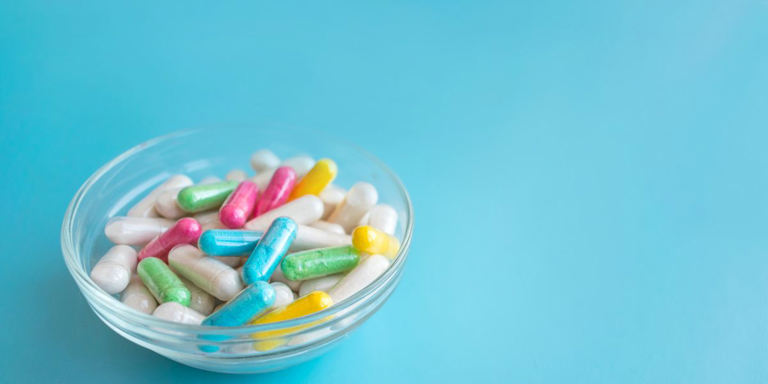Learn about brain health and nootropics to boost brain function
Nootropics are being sold as a ‘mind boost’ – but are they a fad?

Nootropics hit the headlines as smart drugs for students to hit their grades. Now this year, they’re being touted as the everyday wellness essential.
Never heard of them? They’re a form of cognitive enhancing supplement offering to enhance brain function and focus. Sounds appealing, right?—if a little scary.
A-listers including Barack Obama and Hillary Clinton reportedly use them. WH uncovered whether they ’re something you should be popping with your vitamin C or well and truly a wellness fad too far. What are nootropics?
“Nootropics are also known as smart drugs. They’re cognitive enhancers, in other words, they make your brain work better, faster and harder,” says Miguel Toribio-Mateas, Clinical Neuroscientist and Registered Nutritionist mBANT.
It all sounds a tad quick fix-y—but don’t confuse your nootropics. There are two types, the synthetic kind and the natural kind.
Contrary to popular opinion, Toribio-Mateas points out that the latter isn’t necessarily made, rather occur naturally in foods, vitamins and minerals. “They’re not always drugs, rather some are in food supplements. Some are herbal or botanical, in other words, they come from a plant.”
And importantly, they are enhancers, not fixers: nootropics should be taken to enhance memory, focus and brain function, not to fix it.
Sources of nootropics you may have heard of include: Caffeine
St. John’s Wort
Ashwagandha
Zinc
Turmeric
Green tea
White tea
Fish oil
Folate
Vitamins B6
Vitamins B12
What are nootropics made of?
If you’re wondering what’s actually in a nootropic, you’re not alone.
The phrase is an umbrella term for hundreds of different types, however, Toribio-Mateas says most are a blend of micronutrients, adaptogens and herbal extracts derived from food-based substances, like vitamin B6, B12 and folate. All work to reduce the amino acid homocysteine, which is known to be an independent marker of cognitive decline, and claim to counter this by enhancing your cognitive performance, ease stress and increase long-term anti-ageing.
But modern medicine this is not. Nootropics have been around for centuries and taken for a variety of ailments. Botanicals like Rhodiola or Ashwagandha to manage stress
Montmorency cherry as a natural source of melatonin to regulate your nocturnal body clock, enhance sleep quality and contribute to waking up feeling more refreshed
Gotu kola to manage anxiety and anger, effectively “softening the edge” of our emotions.
Ginseng as a provider of stamina
Acetyl L-Carnitine helps maintain healthy cognitive function Do nootropics actually work? Although you can’t generalise for all nootropics as there are many hundreds of different strains, there’s actually plenty of studies indicating their effectiveness. Some studies have found piracetam and noopept to be normalise Alzheimer’s memory loss, modafinil to reduce fatigue and semax and phenibut to improve cognitive function.But medication, whether natural or not, should be approached with guidance. Do talk to your GP or regular health professional before guzzling down brain pills with your hot water and lemon. Why the nootropics boom now? Simply put, women are stretching themselves more than ever before and we’re not talking about in the yoga studios. Never-ending work days (thanks Outloook for iPhone) and busy AF lifestyles that are constantly shared on social media an “always on” culture has been created.Disconnecting from the day is rare rather than regular.This is where smart supplements come in.“Nootropic food supplements work gently and often build up over time,” says Toribio-Mateas. “People taking them often report feeling more energised and focused during the day, and enjoying better quality sleep during the night.”However, not all experts back double dropping brain pills at breakfast. “Just because something is natural or claims to improve your health, does not mean it’s safe,” warns Rosie Stunt, dietician at The Rooted Project.“Before turning to supplements as a quick fix, it’s a good idea to assess your lifestyle first. Ask yourself why are you’re so tired or anxious. Are you getting the basics right in your diet? Eating enough fruit and veg? Limiting your alcohol consumption? Getting enough sleep or managing stress levels?”If you fancy giving them a try, remember, nootropic substances are for adults only. Anyone with a diagnosed medical condition or taking any prescribed medication should talk to their doctor, and seek the advice of a knowledgeable nutrition practitioner. Keep reading: we’ve got a guide to metabolism boosters and the symptoms of IBS.